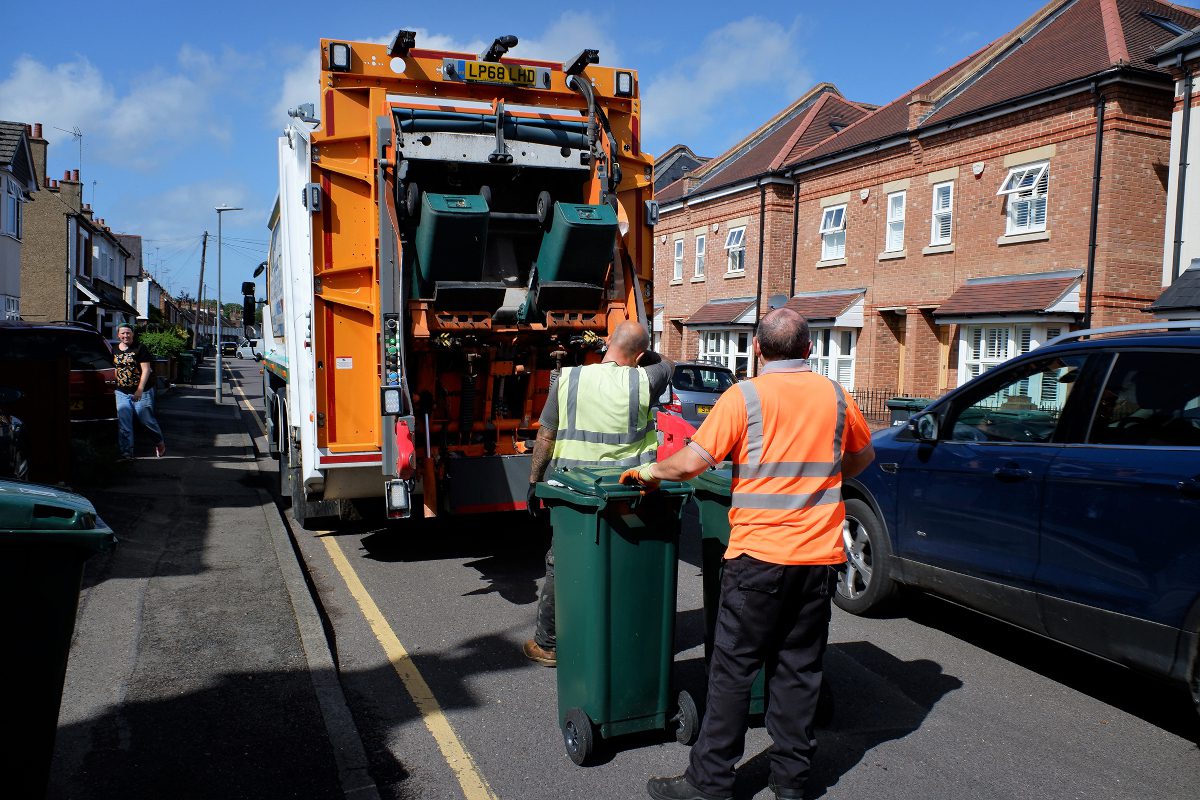
A pledge to “end the postcode lottery” around what you can and can’t put in recycling bins seemed forthcoming from the government’s long-awaited reforms to bin collection in England published on 21 October.
The Simpler Recycling initiative – previously known as Consistent Collection – was generally welcomed by waste and environmental observers.
The reforms bring in a more convenient and practical system, said the government, which prevents councils from being hit with extra complexity, while making sure all local authorities collect the required recyclable waste streams.
Under the terms of the plan, all local authorities will be required – by 31 March 2026 – to collect a defined set of recyclable waste streams: glass; metal; plastic; paper and card; food waste; and garden waste. An additional stream – plastic film – will also become mandatory from 31 March 2027.
Businesses will have to comply with the same collection methods, but by an earlier date – 31 March 2025 (there being no requirement for them to collect garden waste or plastic film).
Exemptions will be available to waste operators, allowing them to collect dry recyclables (i.e., glass, metal, plastic, paper and card) in the same bin or bag, and similarly to collect organic waste in the same container. As LetsRecycle noted, this will be a relief to the many local authorities and MRF operators who collect commingled recycling.
The Recycling Association’s Paul Sanderson said: “Simpler Recycling should end the confusion around what can and can’t be recycled and we welcome the focus on the dry core materials of paper and card, plastics, metals and glass packaging.”
“But it is disappointing that local authorities in England will be able to commingle this material, as we would have preferred paper and cardboard to be kept separate as a minimum. That would have avoided contamination and enabled better quality of paper and cardboard, but also the other materials where paper can act as a contaminant.”
And on plastic film collections from 2027, he added that, “we will need to see the detail as it will be essential that these are kept separate from the other core materials.”
The Chartered Institute of Waste Management (CIWM) said: “The flexibility around collection systems appears to be a sensible way forward and I am sure local authorities will be pleased with that approach.
More frequent bin collections are also promised, including new weekly food waste collections in England (mandatory from 31 March 2026), and a proposal “to include in guidance an expectation that residual rubbish is collected at least fortnightly, helping avoid long waits for smelly waste to be removed.”
The CIWM said the timescale of fortnightly for residual waste was “unwelcome”, and suggested there are examples of where more frequent collections help increase recycling and make collection more cost effective.
But Defra’s announcement said “government will also work with local authorities to assess the collection of residual waste more frequently, especially in urban areas.”
There were concerns too about the proposed timescale for introducing the reforms. The CIWM said: “The deadlines for implementation, especially for film, remain challenging given the delays we have had, and there will be concern about procurement bottlenecks that these relatively short deadlines may cause.”
The March 2026 deadline for introducing weekly food waste collection will not apply to councils linked to a long-term residual waste disposal contract. For example, contracts with energy-from-waste (EfW) and mechanical biological treatment facilities. In these cases, local authorities will be given “a bespoke transitional arrangement” as Defra explained, in comments cited by Letsrecycle.
Crackdown on crime
These plans will be supported by a seemingly renewed effort “to clamp down on untrustworthy waste operators and ensure that our waste ends up where it’s supposed to be.”
And this will include increasing background checks for firms who move or trade waste, to make it harder for rogue operators to find work and easier for regulators to act against criminals. There are also plans to overhaul the current system for tracking how waste is handled, including a new system for digital waste tracking which will record information from the point of production to the point of disposal – collecting the evidence needed to hold criminals to account.
Overall, the CIWM said it was “a very positive, albeit long overdue step forward”, and that it gave the sector “reassurance that Defra is serious about delivering the reforms that were outlined in the Resources and Waste Strategy”.
By ending the ambiguity around what can and can’t be recycled across the country, the initiative does seem like a huge advance. Valpak’s Steve Gough said it also means packaging brands and retailers will be better able to communicate with consumers on recycling, via labelling and direct messaging. “It is this communication that will drive recycling to the next level.”
“For packaging producers, the latest information on materials, combined with Defra’s recent announcement on higher-fee materials under eco-modulation, brings greater clarity on where design changes will lead to cost efficiency.”
Veolia’s Gavin Graveson welcomed the announcement, and the fact it will improve the quantity and quality of material being processed. “We now need to quicken the pace of UK recycling rates by ensuring that packaging is designed to be reused, repaired or recycled.
“There is still an urgent need for waste reforms, policy visibility, and investment. We strongly suggest that the Government consider escalating the plastic packaging tax to a minimum 50% recycled content to stimulate the market without creating a burden for the taxpayer and focus Extended Producer Responsibility on hard to recycle materials such as laminates and composite materials. We need stability in the recycling market to underpin investments so we can stimulate the green economy, create jobs and bring us closer to our net zero goals.”
Valpak suggested some cause for optimism in that its consulting and packaging analysis team were already seeing a rise in brands looking to adapt products to meet the demands of the new system.







